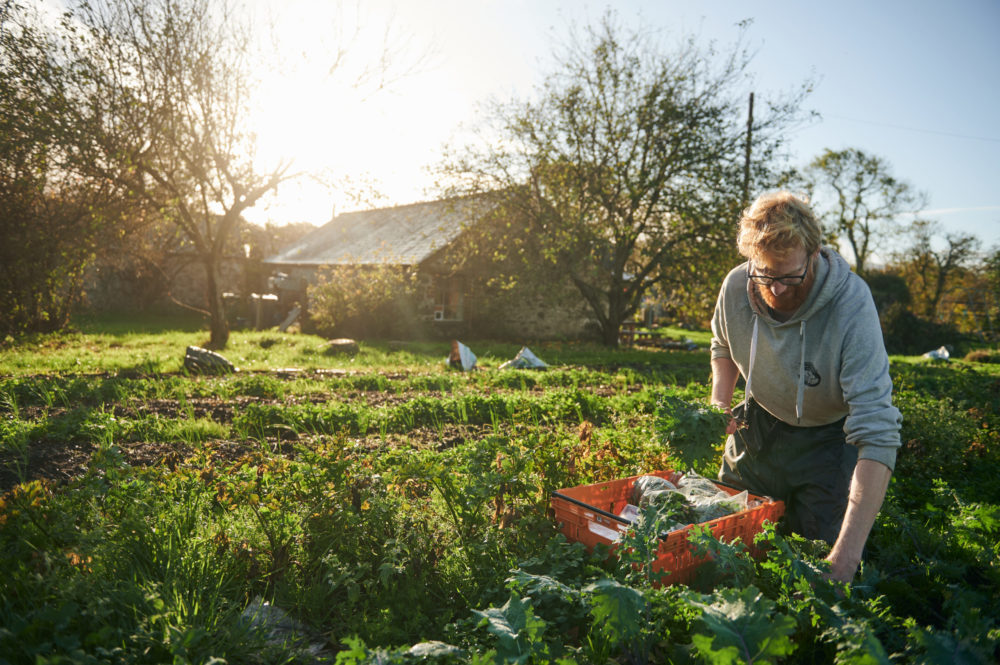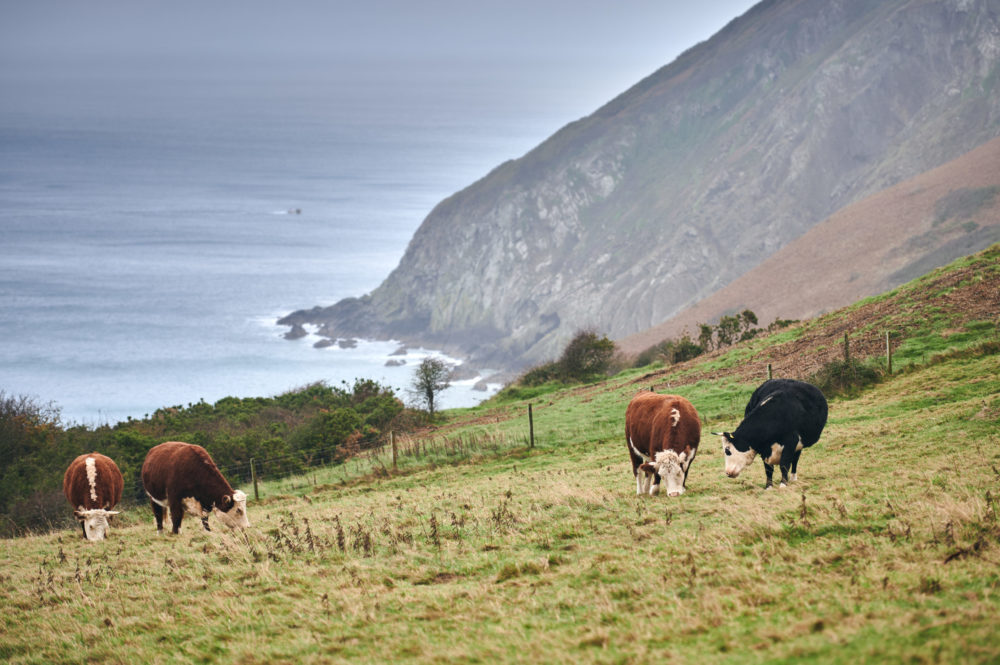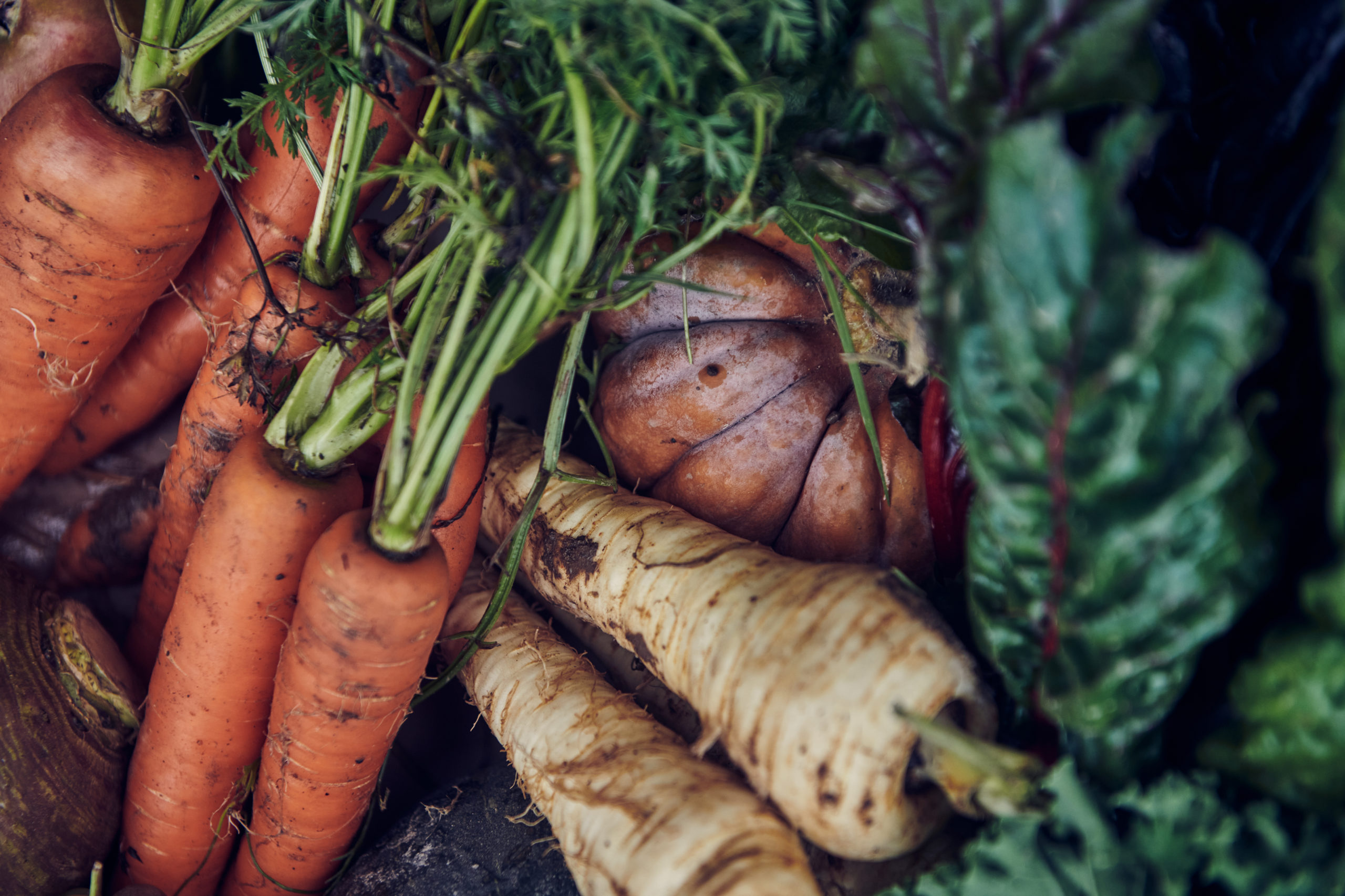How can Wales feed itself in the biodiverse, carbon-neutral world of the future?

Alexander Phillips, WWF Cymru Policy and Advocacy Manager
As the effects of climate change and biodiversity loss become increasingly apparent around the globe, the question of ‘how could Wales feed itself in 2035’ and beyond is easily one of the most important public policy questions of our time.
While sectors such as energy generation and road transportation have clear decarbonisation strategies in place leading up to 2050 through the spread of renewables and alternative fuels, there is currently little in operation to shift the dial across the food system. This system is responsible for around one third of GHG emissions globally[1], and is therefore a sector that has great potential to deliver the changes required for Net Zero to be realised.
Here in Wales, current unsustainable agricultural systems have led to projections showing the sector is set to become the largest domestic emitter of greenhouse gases (GHG) by around 2035[2], with its emissions having risen over the past decade, bucking the trend where other domestic sectors’ emissions are falling[3].
The Agriculture (Wales) Act 2023 and resulting Sustainable Farming Scheme
Our departure from the European Union has forced Welsh Government’s hand in this respect. The new Agriculture (Wales) Act 2023 and resulting Sustainable Farming Scheme (SFS) have the potential to foster significant shifts in the production side of the food system, should politicians have the courage to transition towards truly sustainable food production. This would be a significant contrast to Wales’ current situation where, alongside rising emissions, unsustainable agricultural practices are recognised to be a primary driver of biodiversity loss[4].
There is no doubt that the SFS, if delivery and budget allocations match ambition, is our single greatest opportunity to shape agricultural practices in the decades to come and ensure Wales stays on path to meet its Net Zero ambitions. Not only does the SFS present us with an opportunity to reward a farming system that works more closely with nature at home, but it also has an opportunity to ensure that farming practices in Wales are not contributing to nature loss and climate change overseas. For example, currently, Wales’ animal feed requirements result in three quarters of the soy we import coming from countries such as Paraguay, Argentina and Brazil that are at high or very high risk of deforestation and other social issues [5].
The wider food system
In making these points it is essential to recognise that food production is just one part of the puzzle, especially when what we produce and consume in Wales is so disconnected – just 5% of the lamb and beef we produce is consumed in Wales [6], with imports supplying most of our nutritional intake. Simply put, we are not currently ‘feeding the nation’.

Equally, Wales is still far behind the curve when it comes to wider food system reform – something which wasn’t helped by the failure of the Senedd to further consider the proposed Food (Wales) Bill earlier this year. We need a strategic joined up approach to our food system, one which addresses wider food system impacts in our race to Net Zero, including food consumption and food waste.
Given this context, I was delighted to find that the Net Zero 2035 Challenge Group was devoting so much of its energy to answering how Wales will feed itself in the near future. While I continue to view a national 2035 Net Zero pathway as unfeasible, I recognise that the true value of the Challenge Group is to ask such questions, and thereby highlight where we need to redouble our efforts if we are to deliver our commitment to achieve Net Zero no later than 2050.
The need for honesty
It is through this lens that the Wales Centre for Public Policy’s new Evidence Pack on the food system is so valuable. It elegantly brings together so many complex issues and arguments with the best available data, to create a picture of Welsh agricultural and food systems that highlight two unnerving actualities that we all need to be honest about:
- That our current food system is not fit for purpose. That it fails to provide for the majority of Wales and is driving negative trends in emissions, pollution, and biodiversity loss; and,
- That without significant and urgent reform, these failures are likely to be further amplified in the next 25 to 30 years as the social, cultural, economic, and environmental pressures Wales faces intensify.
The agroecological transition
When faced with these realisations, the challenge becomes what do we do? How do we change our production and wider system, so they better work with nature, are less export orientated and are instead better matched to our nutritional needs and sustaining communities, both culturally and economically?
The answer lies in an agroecological transition that:
- Brings our food production back within natural limits by restoring biodiversity and sequestering carbon at the scale required to meet our Net Zero ambitions through regenerative practices;
- Fosters stronger connections between production and consumption across supply chains to better meet our nutritional requirements and support fair and short supply chains, while seeking sustainable export where possible; and,
- Ensures farmers are not at the mercy of volatile input price fluctuations and wider market instabilities which have cost so many family farms in the past, and in so doing, provides a more sustainable and vibrant rural economy for current and future generations.
Farmers lead the way
While emergent Welsh Government policy can support this transition, it must do so in a way which acknowledges that we are where we are principally in large part due to the way support schemes have been designed in the past. Schemes like the Common Agricultural Policy were designed to meet a post-World War Two production agenda that has never been well suited to traditional more sustainable practices on family farms. All of which is a long way of saying that farmers are not to blame for the system in which they operate, but must be central to the transition to something better.

Agroecology can be this better way. With the right support we can create a transition so far as is sufficient to exceed our nutritional needs and those of future generations. Plenty of farmers across Wales are already doing this, as WWF Cymru identified in our recent case studies report. The problem they are currently facing is that they have taken it upon themselves to make this agroecological shift, and that both historic funding and the Government’s current SFS proposals have not and are not doing enough to support what they have already achieved and drive others to follow their lead.
In doing so, we do not pretend it will work the same for everyone. Like all systems a more agroecological one will have its strengths and weaknesses. Yet by exploring what is possible and asking the difficult questions as the Challenge Group intend, we can all better understand where the risks and opportunities are, and how future taxpayer funding – in the form of the forthcoming SFS and beyond – can support this transition in the most just and effective way.
What about larger scale farms?
When looking at examples of what such difficult questions might be, there has been extensive debate in recent months about the extent to which the Welsh Government’s intended path will work for larger scale farms, including industrial dairy farms. All sides recognise the risks here – that the scale, methods, and landscape management techniques of many of these farms mean it is harder for many of them to transition to more nature-friendly decarbonisation practices than the majority of traditional family hill farms. The question becomes how taxpayer funded schemes such as the SFS deal with this going forward, and so far, the Government doesn’t seem to have a strong enough answer.
Presumably, it can make the SFS more flexible and risk lowering the ambition of the majority to the point where it is unlikely our biodiversity and Net Zero targets can be met. Maybe it can instead accept that some farms will choose not to participate in the SFS, choose to face the market alone, and that strongly enforced regulations will play a key role in ensuring that those farms producing to higher environmental standards will not be undercut by other less progressive farms in areas such as freshwater pollution.
The former is obviously unacceptable to those wishing to create a nature rich Net Zero Wales, and the latter would likely necessitate some very difficult conversations between the Government and affected parties – including Natural Resources Wales who will bear the brunt of any further regulatory enforcement costs. Of course, the Government might instead hope that a ‘third way’ presents itself – likely around adding value to supply chains in the Collaborative Tier to allow more flexibility to engage in a more diverse mix of nature rich decarbonising activities, but such an approach is always going to be very difficult at scale and may even require a bespoke scheme beyond the SFS.
A sustainable food and land use system that delivers for nature and climate?
WWF Cymru have been working with all parties to better understand and answer these questions since 2017 and will continue to do so in the years ahead. Our hope is that the answers we are finding will continue to support Welsh Government, farming groups and the Net Zero 2035 Challenge Group in identifying and securing a sustainable food and land use system that delivers a just, nature rich, Net Zero pathway as soon as possible.
Support our Nation today
For the price of a cup of coffee a month you can help us create an independent, not-for-profit, national news service for the people of Wales, by the people of Wales.







It doesn’t help that we appear to be building over a lot of agricultural land – especially close to the border with England. We import a lot of food from countries that have water supply issues such as Spain or even Kenya. That problem will get worse, not better. Given that our town centres have a lot of empty shops and vacant plots, why are we not building more there? Why not go a bit taller with 5 or more storeys? Such buildings would be more energy efficient. More people actually living in town centres would create more communities.
Urbanisation is a key factor in inflicting harm on land. You are quite right in pointing to inner city redevelopment as a way to go yet the UK permits an old style middle class aspiration to drive its planning. There are problems particularly deep seated pollution of former industrial sites. As for farms and farmers, well there is a long term drift towards industrialisation which has possibly gathered momentum over last 20 years or so. Arguably driven by EU regs which didn’t do much for the traditional small farmer. Post Brexit we are burdened by yet another bunch of bureaucratic… Read more »
So, you want to dictate to people what they can eat and how much they can eat? Good luck comrade.
It’s Wales not Japan! Your bit about building higher buildings really tickled me. Building taller buildings costs more, uses more energy and is all round bad for the environment. Are you seriously suggesting we are running out of green land? Where on earth do you live? Cardiff high street?
Why not move to a more Organic system of producing food. There is no need for artificial fertilisers or artificial pest control which uses chemicals that ultimately pollute the environment. With proper crop rotations and less or not use of artificial chemicals the environment can be a safer and clearer place. Can there be more small scale, small market gardens and even allotment food production? We have grown most of our food on our plots using organic methods and find that the food produced has a better taste and is actually cheaper to produce than to buy from a supermarket.… Read more »
Organically grown food is superior, no doubt. Unfortunately it also takes longer to grow and costs more.